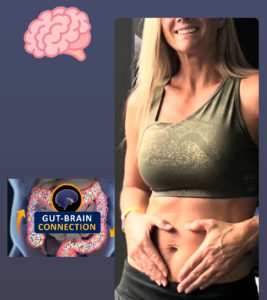…of Food Addiction.
Why Replacing Habits Isn’t Always the Answer
We’ve all been there: that overwhelming craving for a specific food, the kind that seems to take over your thoughts and actions. For some, this is more than just a craving – it’s a full-blown addiction. Food addiction is a real and serious issue, impacting both mental and physical health. And while the idea of simply swapping unhealthy habits for healthy ones seems like a logical solution, it’s not always that simple.
The Allure of Replacement
The concept of replacing unhealthy habits with healthy ones is often touted as a straightforward way to overcome food addiction. Instead of reaching for that sugary snack, grab an apple. Swap the processed meal for a home-cooked one. While this approach can be helpful in some cases, it overlooks the deeper issues at play.
Food addiction, much like substance addiction, is rooted in complex neurological and psychological factors. These factors can make it difficult to simply swap one food for another and expect the addiction to disappear.
The Downside of Like-for-Like Replacement
One of the main problems with like-for-like replacement is that it doesn’t address the underlying addiction. It’s like treating the symptom without addressing the cause. For example, swapping a sugary drink for a diet soda might seem like a healthier choice, but it can still perpetuate the addiction to sweet tastes and potentially lead to other health issues.
Moreover, replacing one highly palatable food with another can keep the cycle of craving and reward going, making it harder to break free from the addictive pattern. As Dr. Vera Tarman, an addiction physician and author of “Food Junkies: Recovery from Food Addiction,” explains, “The problem with replacement is that it keeps you in the same mindset. You’re still focused on the taste, the pleasure, the reward. You’re not addressing the underlying emotional or psychological issues that drive the addiction.”
The Gut-Brain Connection

Emerging research highlights the crucial role of the gut-brain axis in food addiction. The gut microbiome, the community of microorganisms living in our digestive tract, can influence our cravings and eating behavior. Studies have shown that a diet high in processed foods can disrupt the gut microbiome, leading to inflammation and imbalances that can affect brain function and contribute to addictive behaviors.
The Childhood Connection
Our early experiences with food can also play a significant role in shaping our eating habits and predisposing us to food addiction. As Dr. Kelly Klump, a psychologist and eating disorder researcher at the University of Utah, notes,
“Childhood is a critical period for developing food preferences and eating patterns. If a child is exposed to a diet high in processed foods, it can alter their taste buds and brain circuitry, making them more likely to crave those foods later in life.”
Beyond Replacement: A Holistic Approach
Overcoming food addiction requires a more comprehensive approach than simply replacing foods. It involves addressing the underlying psychological and emotional issues that drive the addiction, healing the gut, and developing a healthier relationship with food.
This may involve seeking professional help, such as therapy or counseling, to address issues like emotional eating, trauma, or low self-esteem. It may also involve making significant dietary changes, focusing on whole, unprocessed foods that support gut health and reduce cravings.
“The problem with replacement is that it keeps you in the same mindset. You’re still focused on the taste, the pleasure, the reward. You’re not addressing the underlying emotional or psychological issues that drive the addiction.” – Dr. Vera Tarman
Conclusion
While replacing unhealthy habits with healthy ones can be a helpful step in the journey to overcoming food addiction, it’s crucial to recognise its limitations. A more holistic approach that addresses the underlying causes of the addiction, supports gut health, and fosters a healthier relationship with food is essential for long-term recovery.
Reach out if you need help or share to someone who could benefit from this information.
Maria
x